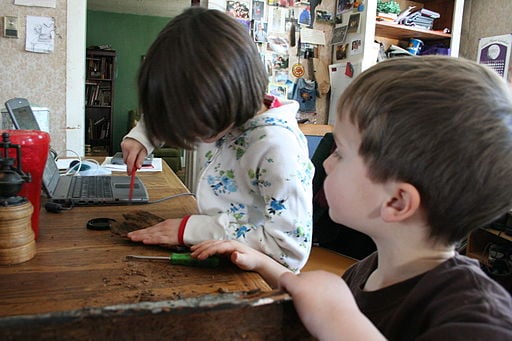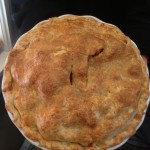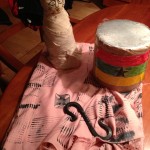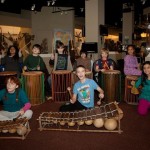 If you live in Boston and you have a 1st through 4th grader, head to the Mapparium. This three-story, painted-glass globe — which you walk through on a bridge — depicts the world as it was in 1935.
If you live in Boston and you have a 1st through 4th grader, head to the Mapparium. This three-story, painted-glass globe — which you walk through on a bridge — depicts the world as it was in 1935.
The boys stood in the middle of the globe wide-eyed and open-mouthed. I heard them “oohing” and “aahing” under their breath. At one point, I saw Zach shaking his head and mouthing, “Oh. My. Gosh.” There really isn’t much too it. It has cool sound effects, which the boys weren’t all that impressed by. It has a wonderful audio presentation, which the boys didn’t listen to. They were just psyched to stand inside the globe and shout out countries, continents, and oceans as they identified them. On the way out, they hugged me and thanked me for bringing them.
I don’t know what it is about maps, but the boys can’t get enough of them.
I think it has something to do with their desire to master the world around them. Which must feel hard to do if you don’t know whether Massachusetts is a city or state. And if you’re not sure if you left the United States when you visit your grandparents in California.
I think it also has something to do with the fact that they are in what Susan and Jessie Wise call The Grammar Stage, the first of three stages in a “classical education.” The Wise’s wrote a very popular book, The Well Trained Mind, designed to help homeschoolers give kids that classical education. Their contention is that first through fourth grade education should be focused far more on content accumulation than on self-expression and creativity. It’s not what I learned in my ed school days, but it’s based on a compelling idea. I’ll let them speak for themselves (from chapter 3 of their book):
 The whole structure of the trivium [the three stages of the classical education] recognizees that there is an ideal time and place for each part of learning: memorization, argumentation, and self-expression. The elementary years are ideal for soaking up knowledge.
The whole structure of the trivium [the three stages of the classical education] recognizees that there is an ideal time and place for each part of learning: memorization, argumentation, and self-expression. The elementary years are ideal for soaking up knowledge.
A classical education assumes that knowledge of the world past and present takes priority over self-expression. Intensive study of facts equips the student for fluent and articulate self-expression later on….
Children like lists at this age. They like rattling off rote information, even if they don’t understand it. They enjoy the accomplishment, the look on the face of an adult when they trot out their stored knowledge, and the sounds of the syllables rolling off their tongues.
This is certainly the case for Zach and Ezra. Tonight as we awere watching episode 5 of Wild China from the BBC, the narrator mentioned an animal whose name I didn’t pick up.
“What did he say?”
Ezra perked up. “That’s a Takin, Momma.”
“A what?”
“A Takin. Don’t you remember from our panda workbook at the zoo? It’s on the endangered species list.”
I hadn’t remembered, and he was delighted.
Now I know that it’s virtually useless to know the conservation status of a mammal in China. Still, his excitement made me happy that we spent a whole day at the zoo and many, many hours completing the workbook when we got home; he’s got something to build on.
And just maybe he will.











